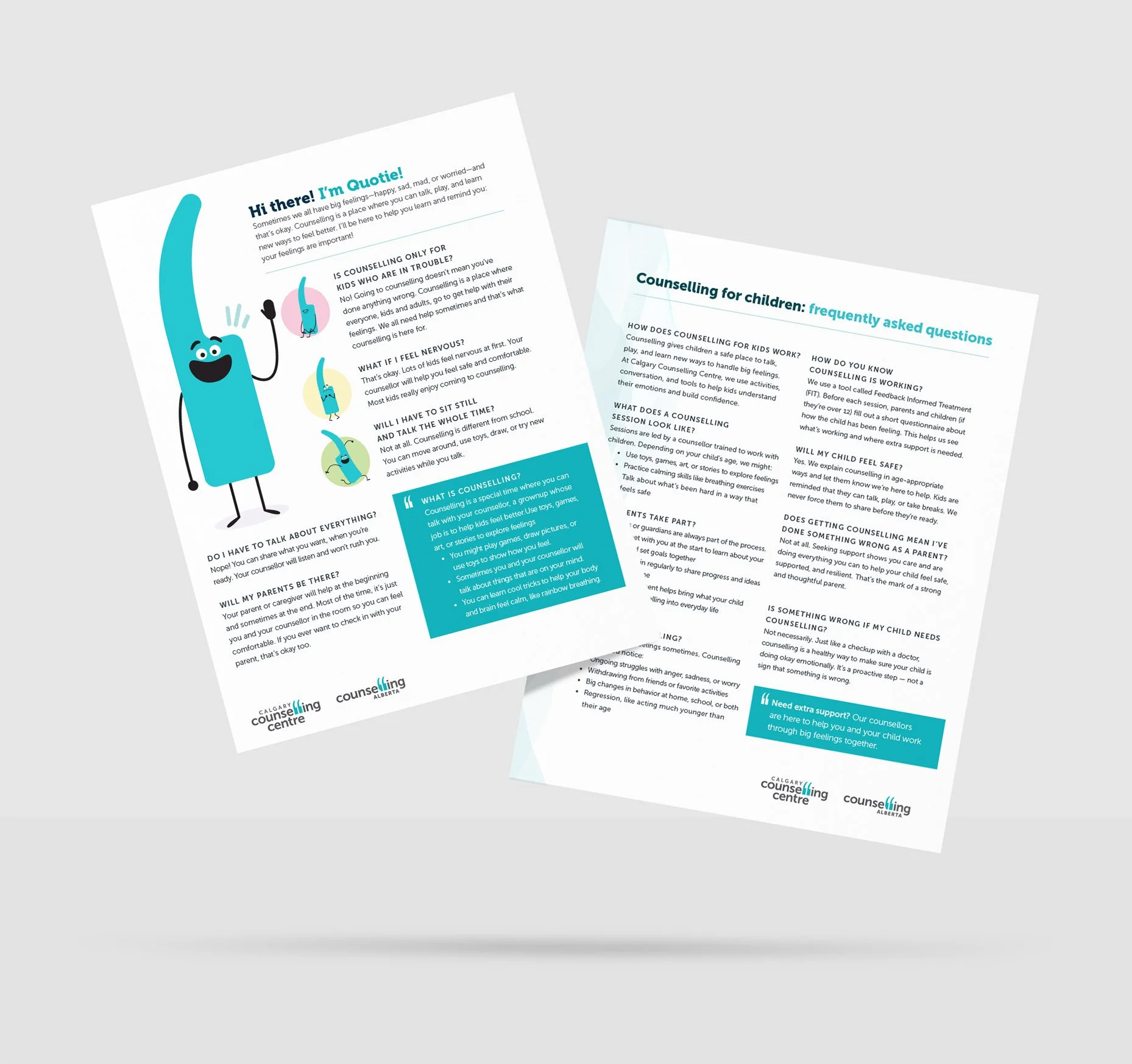Children’s counselling
Support that helps your child understand their feelings, build skills, and feel more confident as they grow.
Support that helps your child understand their feelings, build skills, and feel more confident as they grow.
Childhood comes with big feelings and new challenges. Sometimes kids need extra support to make sense of what they’re going through. Children’s counselling creates a safe, welcoming space where they can talk, learn, and build tools that will help them now and in the future.
Our counsellors work with children who are experiencing:
Emotional challenges – anxiety, sadness, stress, low self-esteem
Family changes – divorce, separation, blended families, loss of a loved one
Difficult experiences – trauma, witnessing violence, bullying
Life transitions – moving to a new home or school, cultural adjustment, health concerns
Behavioural concerns – anger, attention difficulties, withdrawal, conflict with peers
Our goal is to help your child feel supported, understood, and ready to handle life’s challenges.
Yes. What your child shares in counselling is private and treated as confidential.
If your child is under 18, you as a parent or guardian generally have the right to give consent for counselling. In most cases, we will meet with you first to talk through your goals, explain how confidentiality works, and answer any questions. After that, what your child talks about in their sessions is kept private unless:
Your child gives us permission to share certain information with you, or
We believe there is a risk of serious harm to your child or someone else.
For some teens, Alberta law allows them to be considered a mature minor. A mature minor can consent to their own counselling and also choose what information is or isn’t shared with a parent or guardian. If this applies, we will explain this carefully and make sure everyone understands what that means.
We know parents want to support their child, and we work with you to balance your child’s privacy with your involvement in their care. If you’d like to talk more about how confidentiality works in your family’s situation, please ask us.
Our counsellors adjust their approach based on your child’s developmental stage, personality, and needs. Sessions often include play, art, and hands-on activities to help children express thoughts and feelings in ways that feel natural to them. Through games, drawing, or crafts, counsellors create a safe environment where your child can explore emotions, build coping skills, and feel understood.
We use Feedback Informed Treatment (FIT) to track how counselling is helping. Before each session, you and your child (if they’re old enough) fill out a short Youth Outcome Questionnaire (YOQ). These responses act like vital signs for your emotional well-being.
The results show how your child is doing in areas like emotions, relationships, and behaviour. Your counsellor reviews this progress and, if needed, adjusts their approach to better support your child.

Individual counselling
Support for your own mental health and growth.

Couples counselling
Strengthen your relationship and improve communication.

Family counselling
Find support to help your family move forward together.

Counselling for teens and youth
A supportive space to talk, learn coping skills, and feel understood.
Age: 5–17 (parents participate in separate group) • 10 Sessions • 1.5–2 hours per week*
Equip your family with tools for strong relationships. This group aims to give kids and parents the skills to handle big emotions, build self-esteem, and address challenges in a positive and constructive way.
Age: 5–17 (parents participate in separate group) • 10 Sessions • 1.5–2 hours per week*
Learn how to navigate divorce as a family and give your children tools to adapt to change and process grief. For parents and children, tailored to address their unique needs and concerns around separation.
“My counsellor was great and helped me so much with everything I was and still am going through. My life would definitely be in a different direction right now without them. My kids also have a great relationship with them and have opened up to talking to them and have come a long way in their mental and emotional journey.”
Sometimes kids feel emotions they don’t have words for. That’s where Quotie comes in! Quotie helps children recognize feelings like happy, mad, or worried and know it’s okay to feel them all.
With fun tools and kid-friendly language, Quotie makes emotional learning easier at home and at school. Whether it’s a poster, a breathing exercise, or a game, Quotie turns tricky feelings into something playful, simple, and safe to talk about.
You can download free Quotie resources to help your child name emotions, calm down, and express themselves in healthy ways:

Children’s Counselling FAQ
Whether your child meets with us online or in person, they’ll receive the same high-quality support. Choose the option that works best for your family.
Sign up to improve your mental health with simple, practical tips delivered once or twice per week. From gratitude practices to better sleep habits, our simple tips can help you stay on track.
You won’t receive anything else by signing up and we never share or sell email addresses. You can unsubscribe at any time.